Search engine roundup: our favourite 4 search engines to use instead of Google.
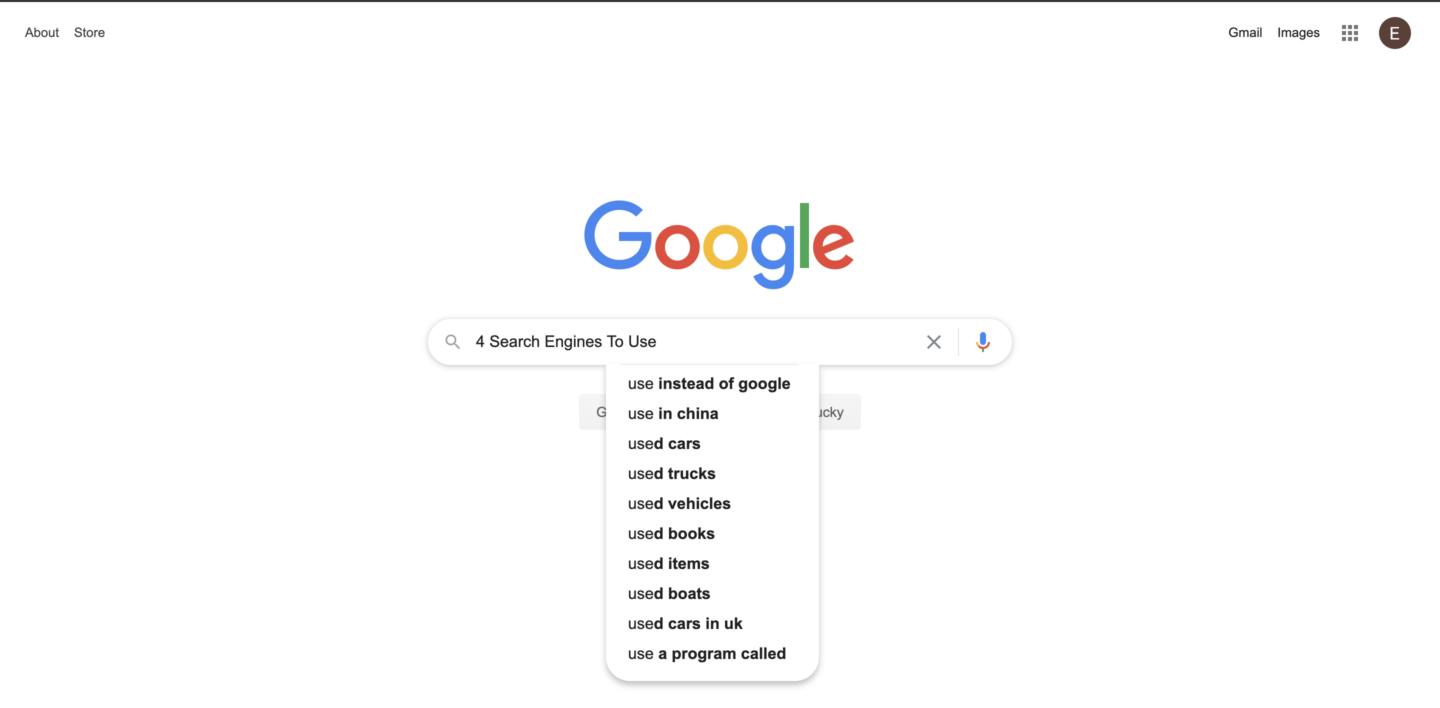
Google, as a search engine, is no longer a tool for people to use to just search for the latest nike trainers, or to find out answers to pub quiz questions. It’s a transitive verb, a part of all of our lives!
We now tell friends and family to just ‘google it’ if they don’t know the answer to a question. It changes often, with regular algorithm updates and allows us to have quick and easy access to any information we want, whenever we want it.
But what if ‘google it’ wasn’t the only way? What if we had other options that gave us the same rich results as we get from Google’s 3.5 million results that are processed per day? What if we didn’t just focus on Google SEO and branched out?
The good news is there are other options. Options that stop your information being shared far and wide with other advertisers. It’s not exactly a secret that Google has access to a huge amount of data stored on and across Google products and profiles.
So, if you want to branch out and try something new that may give you better experience, better results or better privacy standards, the look no further. Here are our 4 Search engines to use instead of Google.
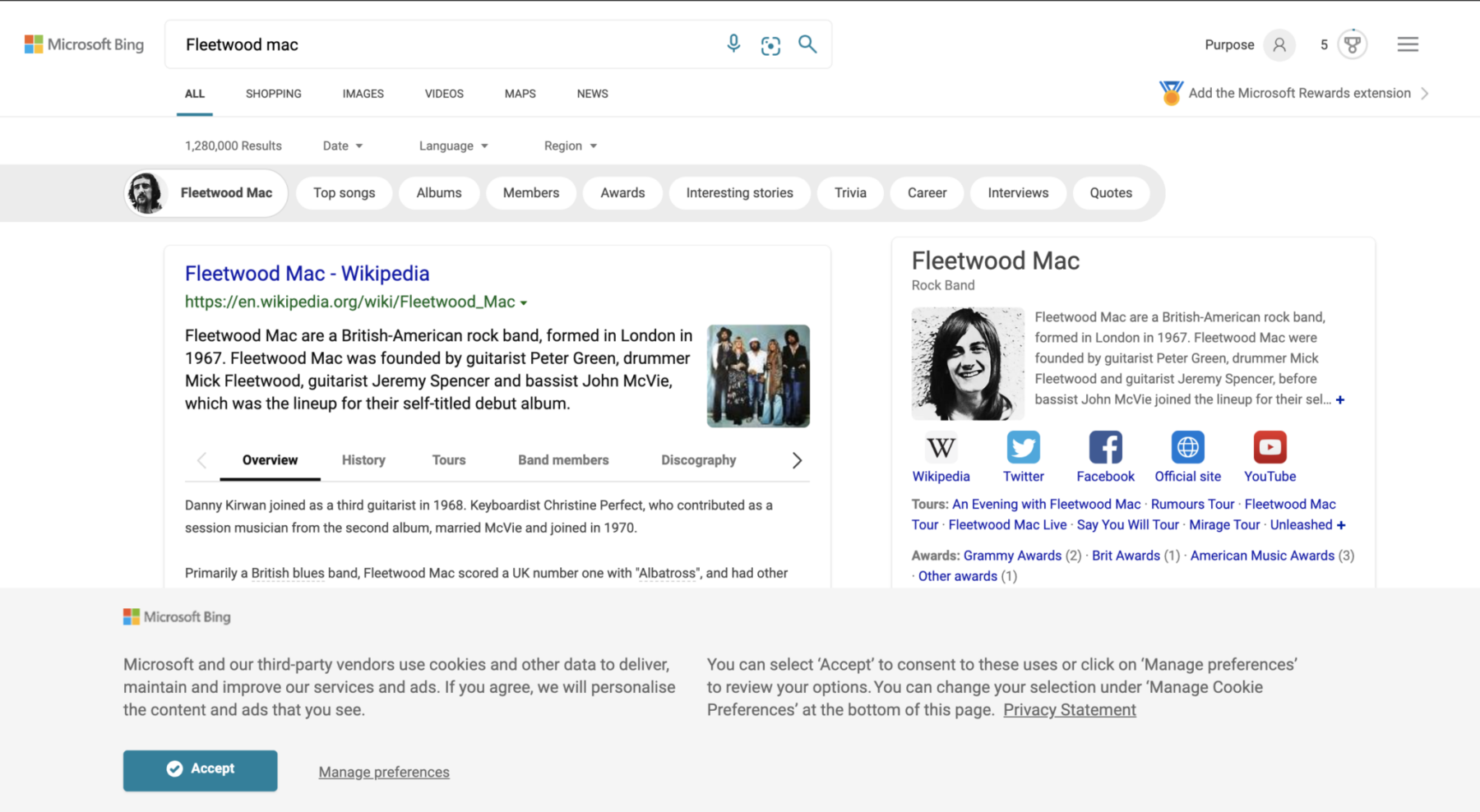
Microsoft is a massive tech giant, so naturally it has its own search engine. It also it pretty under rated in terms of usage.
In terms of the User Interface, there is a lot of white space, and it’s a much cleaner User Experience with much less of a focus on monetisation.
According to Aori, Bing users lean toward an older demographic, with 54% of users over the age of 45 and 46% of users under the age of 45. Over one-third of Bing users have household incomes of over $100,000, which means they have money to spend.
But that could just be because Microsoft hardware users are typically of this demographic too and it comes automatically installed on most Microsoft devices.
Bing search also has a pretty cool rewards programme. These points are redeemable at the Microsoft and Windows stores, so you can spend points on films, apps and games.
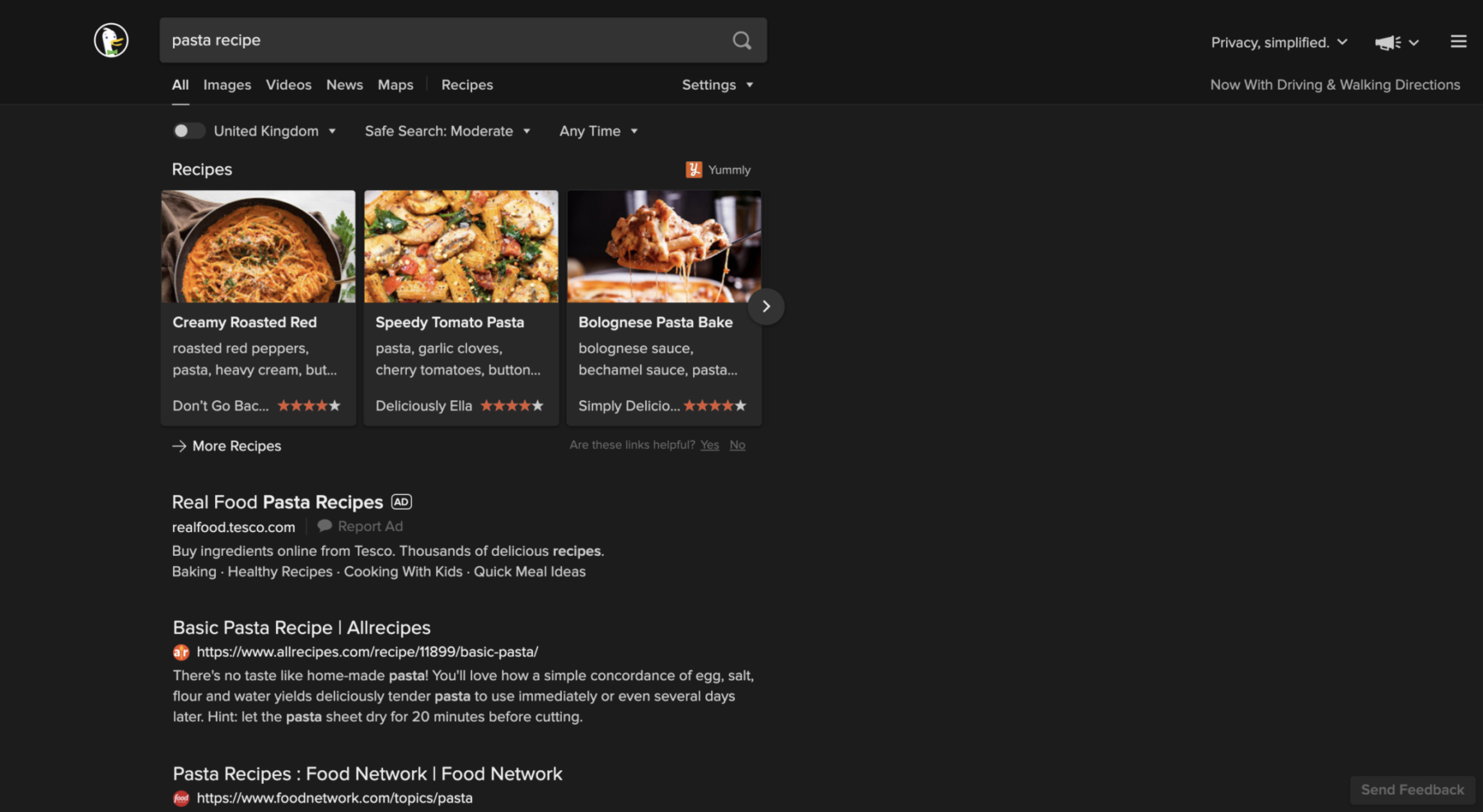
Another very clean and easy to user interface, and approximately 60 million people (as of June 2020) use DuckDuckGo every year!
The best thing about DuckDuckGo is that it doesn’t collect and/or keep any of your personal data. And it’s actually known for it’s anonymous searches, there have been over 57 million of them worldwide. That means you don’t have to worry about your information being used all over the internet to remarket to you.
So if you want to keep your searches private, and your data safe – DuckDuckGo is the search engine for you!
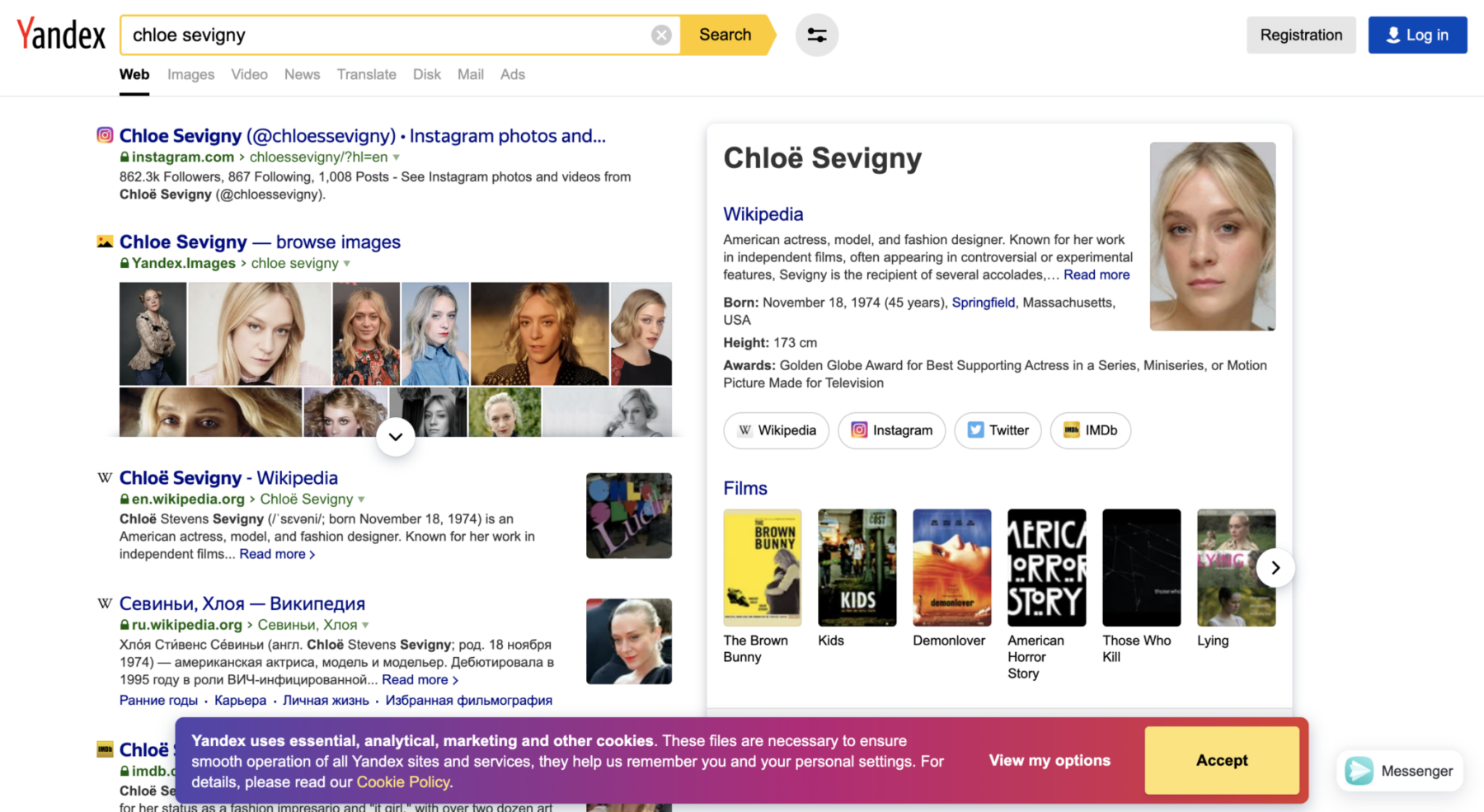
Yandex isn’t used a huge amount in the US and UK, but in Russia, it’s used by over 45% of internet users.
It’s also the search engine of choice by users in Turkey, Belarus, Kazakhstan and Ukraine.
It also offers a suite of tools for developers, like Yandex.Cloud, Maps API, Clickhouse and and AppMetrica, which are much easier to use than Google and Bing.
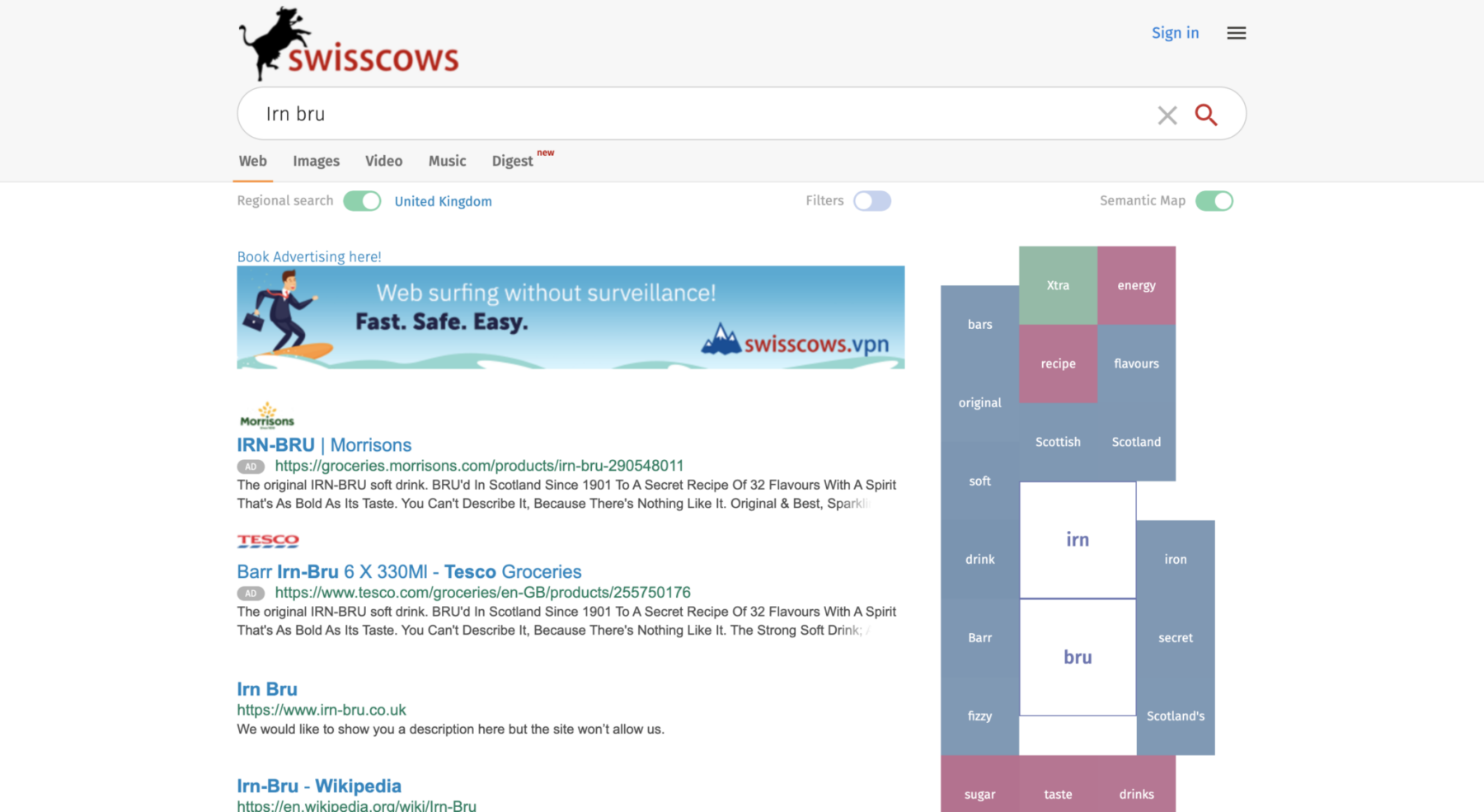
Swisscows is another privacy and data friendly search engine option. These guys describe themselves as a family friendly alternative to search, respecting users’ privacy and never tracking your data.
This search engine is best used repeatedly, so that it’s artificial intelligence can provide you more accurate results as it get’s more context about your habits.
Google might be the biggest, but it doesn’t mean it’s the best or right search engine for you. When your privacy and data is involved it’s important that you understand how it will be used. Whether you are looking for the best experience, or a family friendly option – these four search engines are worth a try!
If you need help with your SEO, get in touch today.